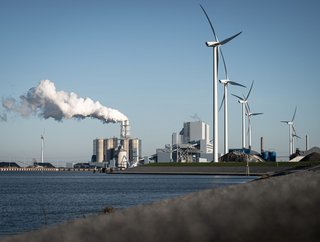Could self-interests stunt renewable energy development?

Struggling to grapple with the wave of disruption within the sector, the global energy industry finds that some of the greatest obstacles to progressing orderly, clean and just energy transitions include national self-interests and the risk of ‘a green technology arms race’ (46%) according to The World Energy Council.
National interest dominates
Expanding on the above, The World Energy Council reports that national interest dominates with 59% of leaders in the industry agreeing that energy independence is critical to securing climate-energy-security agendas in their countries. However, self-interest is being challenged by the acceptance that energy interdependence is a new global reality (84%).
When it comes to addressing emerging challenges of climate resilient energy for sustainable development, 86% of respondents use the World Energy Trilemma framework, which offers countries, regions, and cities a way to track, benchmark, and guide performance when it comes to managing clean, just and inclusive energy transitions.
“The results speak for themselves - the world energy system is no longer fit for purpose. Throwing more money and technology at complex system change is not enough to ensure faster or fairer energy transitions. Inclusive implementation is essential – mobilising, enabling and convening more people, diverse communities and different industries, and understanding place-based realities. Addressing this complex challenge requires a humbler leadership approach and active learning. Our call to action on humanising energy is key to making energy transitions happen in a new context of low trust, increasing fragmentation and polarisation, and new demands for energy justice,” said Dr Angela Wilkinson, Secretary General and CEO at the World Energy Council.
Pace and progress of energy transitions
According to The World Energy Council, respondents are concerned when it comes to the pace and progress of energy transitions (64%). This figure has more than doubled when compared to 2022.
In particular, concerns derive from insufficient action being driven from the bottom up. 35% of respondents state that individuals and communities should be empowered to lead transformation. However, 43% see challenges centred around affordability and modern energy access to be the most concerning aspect when it comes to ensuring a fair energy system.
Other key insights
- Focusing on decarbonisation technology (48%) is greater than complementary or adaptive solutions - reuse (4%), remove (4%), and recycle (3%) - despite being critical to ensuring lastical structural changes.
- Basic access to clean energy is not enough, access to more quality energy is needed for sustainable development (62%).
- Considered the greatest critical implementation gap to accelerate energy transition, organisation need to align the financial system with sustainable development goals (39%).
- Market volatility uncertainty has reduced with only 8% prioritising this issue.
- Africa recognised community empowerment and workforce transition as being important to progressing energy transitions.
“These results reiterate the important role of the World Energy Council and World Energy Congress in providing a trustworthy and neutral platform for unheard voices in energy and catalysing more effective collaboration across the entire energy ecosystem to ensure a sustainable energy future for all,” concluded Dr Wilkinson.






